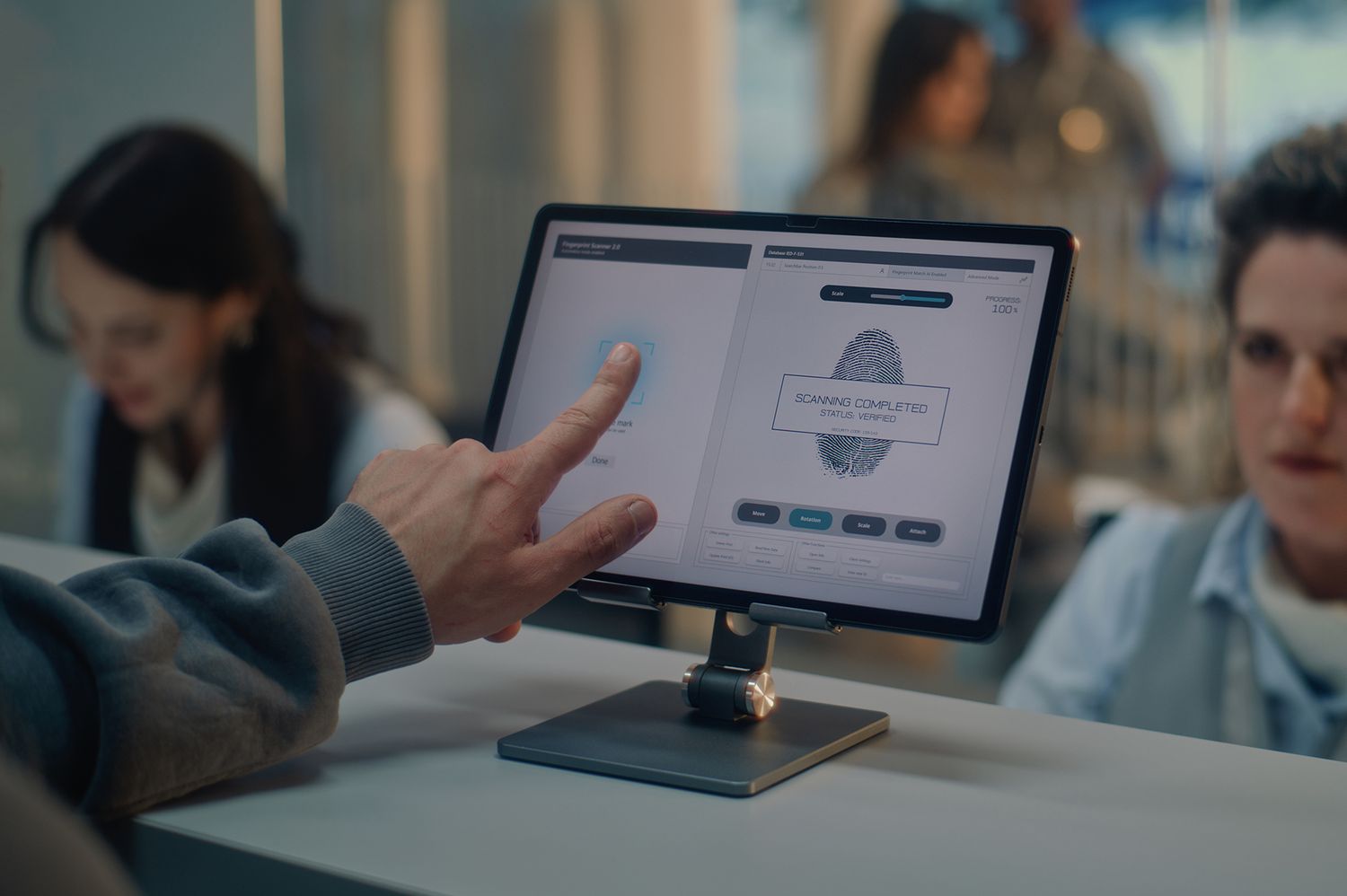:max_bytes(150000):strip_icc():format(jpeg)/TAL-scan-fingerprint-airport-FNGRSCANAIRPORT0925-d9bb67d2833849cfbeebd42333fe2841.jpg)
Travelers will soon be required to provide a fingerprint or face scan for entry to dozens of popular countries like France and Spain.
Starting Oct. 12, Europe’s new Entry and Exit System (EES) will begin rolling out at airports and border crossings as part of a “progressive start” to slowly test and expand the technology, according to the European Union. The full implementation will not take effect until April 10, 2026.
The EES program will eventually be required in 29 European countries, including many in the European Union like France and Spain in addition to those in the Schengen area like Iceland, Norway, and Switzerland. It will be required for all non-EU nationals heading to Europe for a short stay, but the fingerprints of children below 12 years old will not be scanned.
The European Union said the goal of the new program is to modernize borders, combat identify fraud, and easily identify travelers who overstay their visas. Files containing personal data will be stored for about three years, and the EU said data may not be transferred to third parties.
In anticipation of the new procedure, the U.S. Department of State warned American travelers in a post on X to “expect new automated border checks and to have their biodata digitally collected upon arrival and departure.”
The scanning of biometric data isn’t the only major change under the EES system. In addition, the procedure will slowly remove the ritual of collecting stamps in a passport book, a popular souvenir among travelers.
“The EES will gradually replace passport stamps with a digital system that records when travellers enter and exit, making border checks faster and helping staff to work more efficiently,” the European Union noted. “With EES, travellers will spend less time at the border thanks to faster checks, self-service options, and the possibility to give their information in advance.”
The EES system was first announced in 2023 with plans to originally debut it in 2024. However, the program was eventually delayed.
Beyond the European Union, the United Kingdom implemented its own electronic travel authorization (ETA) fee earlier this year. That is now required for most travelers arriving in the country, including from the United States.
In the U.S., travelers applying for the popular expedited security programs TSA PreCheck and Global Entry must similarly provide fingerprints for security scans, while companies like Clear Plus utilize fingerprint, eye, or facial scans to help travelers get through airport security faster.





